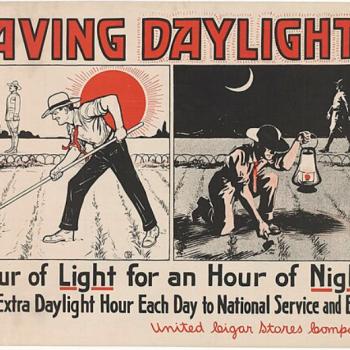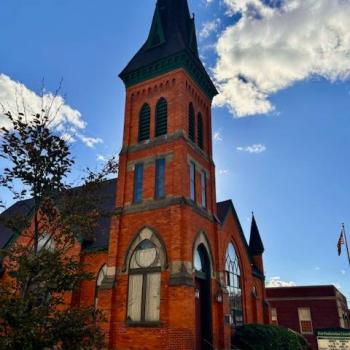That is the point of the Mormon doctrine of sealing: those who accept baptism (and not all for whom we are baptized by proxy will accept it; they continue to have their agency—and none who are baptized are counted on the church rolls as Mormon converts) can be sealed (linked, welded) to their loved ones. LDS temples exist so that we can do rites for the living, but even more rites are done in them by proxy for those who have died.
Some Mormons seem not to understand their own beliefs. The point of doing the research needed to submit names for proxy ordinances is ultimately to create that welding link between the members of one's family. I am to submit the names of my deceased ancestors so that they, if they so wish, can be part of the linkage created by those ordinances. We can be sealed as a family.
From a Mormon point of view, therefore, it makes no sense to submit the names of celebrities or famous people or Holocaust victims to whom one has no kinship relation. I do nothing for my ancestral family when I submit the name of someone to whom I am not related. In spite of that, some exuberant, misguided, and sometimes fanatical people have made such submissions, and apparently some continue to try to do so.
The LDS Church has taken various measures to dissuade them. For a long time that consisted mostly of strong discouragement. Then it included the requirement that they acknowledge the rules for submitting names each time that they did so, rules that explicitly forbade them from submitting names of those to whom they were not related.
When that did not work, the Church went further. Now if a name is submitted that appears on the list of Holocaust victims or celebrities, the submitted is prevented from going further and told that he or she must be interviewed by someone from the LDS Church's Family History Department to prove that they have a kinship relation with that person.
These measures are not and cannot be foolproof. But those who violate the prohibition on doing such work may have their ability to submit names for proxy work terminated (a serious consequence for practicing Mormons), and they may even face church discipline (Salt Lake Tribune, 2 March 2012).
In spite of what a few have done who have damaged the LDS Church's relations with some other believers, even those who do not believe Mormon teachings about baptism and sealing should be able to see that the doctrine as intended has nothing to do with making converts of others' ancestors.
Rather, it has everything to do with making it possible for our personal ancestors to join with us in the eternities as friends and loved ones before the throne of God. The teaching is one of eternal love and commitment rather than of force and coercion. Mormon proxy ordinance work is a matter of family rather than popularity or renown.





